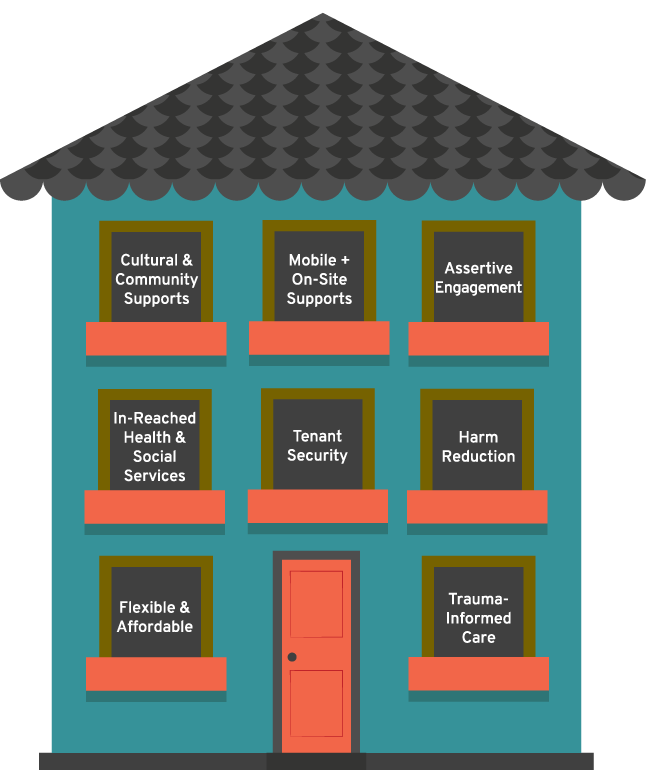Permanent Supportive Housing
What is permanent supportive housing?
Permanent supportive housing provides the level of support required to address complex and interconnected challenges, such as persistent addictions and mental illness. Permanent supportive housing often includes on-site staffing to assist with tenancy and manage day-to-day issues, as well as work towards long-term recovery.

Why is permanent supportive housing needed?
Permanent supportive housing is particularly important for individuals experiencing chronic homelessness. In October 2016, 1,752 individuals who were surveyed as part of Edmonton’s biennial Homeless Count indicated that they were experiencing homelessness – 59% of whom were chronically homeless.
There is a significant need for permanent supportive housing sites in Edmonton. For many individuals, the alternative to permanent supportive housing is living on the street, in the river valley or in emergency shelters.
Edmonton’s lack of permanent supportive housing units affects everyone. When people with complex needs experience homelessness, they often rely heavily on emergency services (including hospital emergency departments, ambulance and police). When hospitalized, there is often a delayed discharge due to a lack of appropriate long-term inpatient care, contributing to capacity pressures in the health care system that affect everyone. In addition, the frequent use of police resources to address homelessness diverts resources from other enforcement priorities in the community.
When Edmonton’s Plan to End Homelessness was launched, it identified the need for 1,000 Permanent supportive housing units within the first 5 years. However, the number of units developed has been just over 200 since the plan was implemented. This continues to be one of the biggest needs in addressing homelessness in our city.